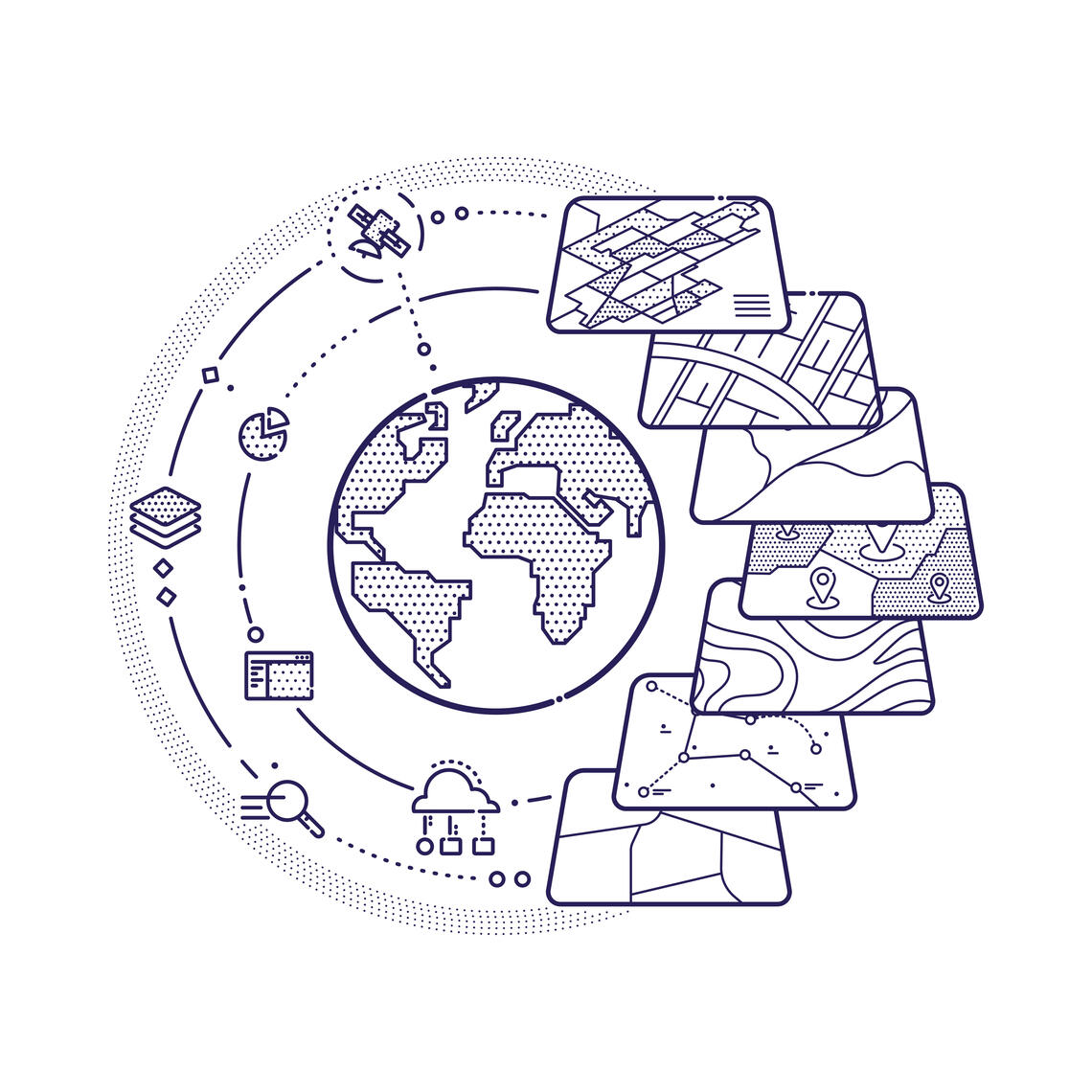
Embedded Certificate in Geographic Information Science (GIS)
Start Something New in GIS!
Use technology to solve a wide range of real-world issues
Learn from international leaders
Enhance your undergraduate degree
Employers need grads with geographic information and analytics skills
Get the chance to work in the private or public sector or in social enterprise.
What is Geographic Information Science?
Application of science and information technologies related to:
Gathering, studying, displaying, and understanding geospatial data.
UCalgary Geography has been an international leader in GIS research and education for more than 20 years
Our areas of emphasis include
- remote sensing: imaging Earth’s surface to gather information
- geographic information systems: computer systems for storing, analyzing, and visualizing spatial information
- geospatial modeling: analytical techniques for extracting information from spatial information that improves and informs decision making

An embedded certificate in GIS will tell employers that you can use technology to solve a wide range of real-world issues.
Spatial data is fundamental
We'll train you to apply geographic information technologies and GIS principles to obtain, analyze, visualize, and interpret spatial data.
We also emphasize the development of strong analytical and problem-solving skills.
Gain a competitive edge
Why take an embedded certificate in GIS? Show employers that you can apply technological solutions to solve their real-world problems.
What will you learn?
Graduates of this program will be able to:
- Recognize the fundamental properties of spatial features and geographic phenomena. Identify appropriate geographic representations.
- Exercise critical spatial thinking when confronted with spatial problems. Determine the influence of location, direction, distance, and adjacency.
- Develop a breadth of knowledge about geospatial software applications. Visualize, analyze, and interpret geographic data.
- Show basic skill using industry-standard geospatial software. Learn technologies like GIS, remote sensing, spatial/statistical modeling, digital cartography, and geovisualization.
- Think critically about the impacts of geospatial technologies on individuals and society. Including the ethical use and management of spatial data and geospatial analytics.
- Develop and design effective digital mapping products. Communicate powerful spatial information in maps and graphics.
Talk to a program advisor about adding the certificate to your degree today!
Experiential learning and portfolio development
All courses in this embedded certificate program integrate hands-on experience:
- computer lab exercises with industry-standard software
- student-led term project work
- practical experience working with real-world spatial data or data acquisition instruments (e.g., GPS or survey instruments).
In lab sessions, you'll use what you've learned in class to work on projects in small groups.
Build a digital portfolio

Start something innovative with a certificate in GIS
You'll have the option to integrate what you've learned and accomplished into a digital portfolio, including:
- software proficiencies
- online course certifications
- geographic datasets
- software tools
- geospatial projects
- web-based mapping products
Display your wide-ranging achievements, prove your in-depth knowledge of GIS, your mastery of technological tools and your ability to solve problems using geospatial analytics.
Admission requirements
To be eligible for admission to the embedded certificate in GIS, you must:
- be in good academic standing and enrolled in a bachelor’s degree program at UCalgary
- have completed a total of 60 units of undergraduate coursework before you start
- have completed Geography 380: Geospatial Communication with a grade of C- or higher
Program requirements
To earn the embedded certificate in Geographic Information Science, you will successfully complete 18 units of coursework.
Core course: 12 units
Elective courses: 6 units
- Geography 480
- Geography 482 or Geomatics Engineering 351
- Geography 484 or Geomatics Engineering 435
- Geography 485
Complete 6 units from the following:
- Geography 567 or Computer Science 219 or Computer Science 233
- Geography 582
- Geography 584
- Geography 585 or Geomatics Engineering 563 or Statistics 431 or Ecology 425
- Geography 586 or Geomatics Engineering 551
- Geography 587
- Geography 588
As easy as 1,2,3
Start something innovative in your education and career with the embedded certificate in GIS at the University of Calgary. Follow these steps to enroll in the certificate.
